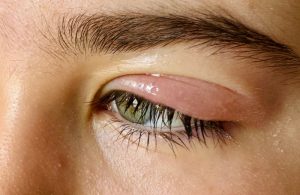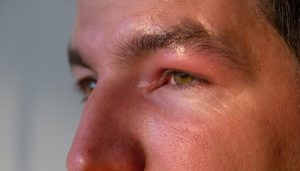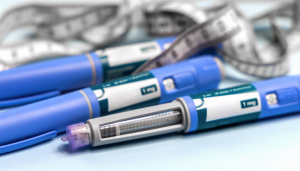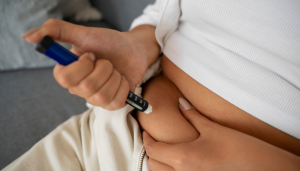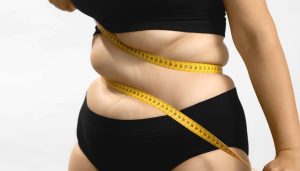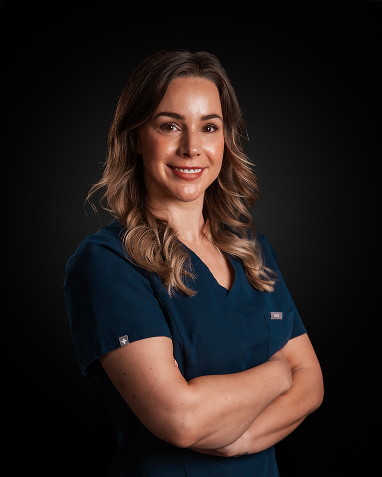How to achieve clear skin? The secret to clearer skin is following a simple daily skincare routine, choosing the right skincare products, staying hydrated, eating well, getting enough sleep, and managing stress.
Sometimes, when at-home and lifestyle habits are not yielding results, seeking professional treatments like HydraFacial, chemical peels, UltraClear laser resurfacing, and microdermabrasion can help achieve clear, radiant, and healthy skin.
Let’s get into the details of all these skin-clearing tips and more.
12 Best Tips On How To Get Clear Skin
Here are 12 tips that can help you get clear skin:
1. Cleanse your skin twice daily
2. Prefer using oil-free products
3. Exfoliate regularly
4. Address your skin concerns
5. Moisturise daily
6. Get enough sleep
7. De-stress yourself
8. Follow a nutritious and balanced diet
9 Stay hydrated
10. Wear sunscreen daily
11. Consider using specific and fewer products

Ready to achieve your aesthetic goals?
- CQC-Registered Clinic with Nationally Recognised Leadership
- Over a Decade of Surgical & Aesthetic Expertise
- Personalised treatment plans tailored to your needs
12. Try professional treatments
Let’s explore these 12 tips to get clear skin in detail.
1. Cleanse Your Skin Twice Daily
Cleansing your face twice daily, in the morning and before bed, removes dirt, oil, and impurities that accumulate throughout the day. It also helps prevent acne formation. Use a gentle cleanser suitable for your skin type—whether oily, dry, or combination. Over-cleansing can strip your skin of its natural oils, leading to increased oil production and potential breakouts, so finding a balance is essential.
2. Prefer Using Oil-Free, Non-Comedogenic Products
Choosing skincare and makeup products labelled “oil-free” and “non-comedogenic” ensures they won’t clog your pores. Their specific formula avoids blocking pores, reducing the likelihood of acne and promoting clearer skin. To maintain a clear skin, prefer using moisturisers, sunscreens, foundations, and other oil-free facial products.
3. Exfoliate Regularly
Exfoliation helps remove dead skin cells that can clog pores and cause dullness and acne on your face. Use a gentle exfoliator once or twice a week. First, determine your skin type, and then you can opt for physical exfoliants (like scrubs) or chemical exfoliants . But remember not to over-exfoliate, which can irritate your skin and cause swelling.
4. Address Your Skin Concerns.
Over-the-counter products can address various skin concerns, including acne, dullness, dehydration, and uneven skin tone. Ingredients like salicylic acid, benzoyl pe oxide, and retinoids are renowned for their acne-fighting properties. Salicylic acid helps to unclog pores, benzoyl peroxide removes acne-causing bacteria, and retinoids promote cell turnover for smoother skin.
For dullness, look for products with vitamin C or glycolic acid, which brightens and evens the skin tone. Hyaluronic acid is excellent for combating dehydration by retaining moisture in your skin and keeping it plump and hydrated. Always follow product instructions and start with lower concentrations to see how your skin reacts before increasing usage.
5. Moisturise Daily

Even if you have oily or acne-prone skin, moisturising is essential. Skipping moisturiser on dry skin prompts your sebaceous glands to produce more oil, potentially causing more breakouts. Choose a lightweight, non-comedogenic moisturiser to hydrate your skin without clogging your pores.
6. Get Enough Sleep
Getting enough sleep is good for your skin and overall health. Lack of sleep can increase stress hormones in your body, leading to inflammation and breakouts. Aim for 7-9 hours of quality sleep each night to give your skin time to repair. Sleep also helps reduce under-eye circles and improve overall skin tone.
7. De-stress Yourself
Stress can worsen skin conditions like acne giving you unclear skin appearance. Adding stress-reducing activities, such as yoga, meditation, or regular exercise, to your daily routine can help a lot. Finding time to relax and unwind can significantly improve your skin health. Chronic stress increases the hormone cortisol, increasing oil production and subsequent acne.
8. Follow a Nutritious & Balanced Diet
Your diet plays a significant role in your skin’s appearance. A diet high in sugar and refined carbohydrates can trigger acne. Focus on eating plenty of fruits, vegetables, whole grains, and lean proteins. Some studies suggest that dairy products, especially skim milk, may exacerbate acne in some people, so monitor your intake and observe how your skin responds. Omega-3 fatty acids in fish and flaxseed can help reduce inflammation and promote clear skin.
9. Stay Hydrated

Drinking plenty of water helps keep your skin hydrated and can improve its elasticity. Proper hydration supports overall skin health and can help reduce the occurrence of breakouts. Aim for at least eight glasses of water a day. Herbal teas and water-rich fruits like cucumbers and watermelon also contribute to hydration.
10. Wear Sunscreen Daily
Sun exposure can lead to skin damage, premature ageing, and breakouts. Protect your skin by wearing sunscreen every day, even on cloudy days. Choose a broad-spectrum sunscreen with an SPF of at least 30 and ensure it is non-comedogenic to avoid clogging your pores. Sun damage can exacerbate hyperpigmentation and scarring from acne, making it essential to protect your skin.
11. Consider Using Specific and Fewer Products.
When it comes to skincare, sometimes less is more. Overloading your skin with many products can irritate and clog pores and breakouts. Stick to a simple routine that includes a gentle cleanser, a moisturiser and sunscreen. Introduce new products gradually and give them time to work. Your skin needs consistency and time to adjust to new ingredients. Keeping your routine minimal and focused allows your skin to breathe and heal more effectively, leading to more precise, healthier skin.
12. Try Professional Treatment

If you want clear skin and wonder how to get rid of forehead wrinkles, professional treatments can really help.
Hydrafacial
HydraFacial is a great option, this treatment cleans, exfoliates, and hydrates your skin all at once. It removes dirt and dead skin while giving your skin essential nutrients. After a Hydrafacial, your skin will look smoother, clearer, and have fewer wrinkles. Adding this treatment to your routine can boost the results of your at-home skincare.
Chemical Peels
A skin specialist will apply an acidic solution on your face to gently remove dead skin layers. This improves skin texture, reduces acne breakouts, and brightens dull skin.

Ready to achieve your aesthetic goals?
- CQC-Registered Clinic with Nationally Recognised Leadership
- Over a Decade of Surgical & Aesthetic Expertise
- Personalised treatment plans tailored to your needs
Ultraclear Laser Resurfacing
A laser treatment that targets acne scars, pigmentation, and uneven skin texture. It stimulates collagen, resulting in smoother, clearer skin over time. If you wonder how to shrink pores permanently, UltraClear may be the answer.
Microdermabrasion
A gentle treatment that buffs away dead skin cells and helps improve overall skin tone. It can reduce minor scars and brighten the skin.
Additional Tips for Clear Skin
- Avoid Touching Your Face: Your hands carry oils and bacteria that can stick to your face, causing breakouts. Try to keep your hands away from your face as much as possible.
- Clean Your Makeup Brushes: Dirty brushes can harbour bacteria and lead to acne. It’s a good practice to clean brushes regularly to avoid bacteria and dirt.
- Use a Gentle Laundry Detergent: Harsh chemicals in laundry detergents can irritate your skin. Choose a detergent free from dyes and fragrances to reduce the risk of skin irritation.
- Monitor Hormonal Changes: Hormonal fluctuations can cause breakouts, particularly in women. If you notice a pattern in your acne, talk to your doctor about possible solutions, such as hormonal therapies or birth control pills.
How To Get Clear Skin In 2 Days?
Achieving fully clear skin in 2 days is challenging, but you can make it look brighter and smoother quickly. Try these tips:
- Drink more water: It keeps skin fresh and reduces dullness.
- Eat light meals: Avoid oily food, choose fruits and veggies.
- Cleanse twice a day: It helps remove dirt and oil without over-washing.
- Moisturise your skin well: Keeps skin soft and glowing.
- Apply a sheet mask or face pack: They give instant hydration and brightness.
Try quick clinic treatments:
- HydraFacial: Deep cleans and hydrates in one session.
- Light chemical peel: Smooths and brightens within days.
Keep in mind: These steps won’t make your skin flawless overnight, but they can help you look fresher and clearer in just two days.
Final Thoughts
Getting clear skin involves taking a holistic approach with a regular skincare routine, making healthy lifestyle choices, and, if needed, getting professional treatments. This includes cleansing, exfoliating, moisturising, and protecting your skin from the sun. Eating well, managing stress, staying hydrated, and getting enough sleep are also essential to improving your skin’s health and appearance. Natural remedies like tea tree oil, honey, and aloe vera can help your skin look better.
Consider professional treatments if you need extra help with stubborn skin issues. Regular hydrafacial in Leeds can help enhance your at-home skincare routine.
Following these tips and being patient can achieve the clear, flawless skin you’ve always wanted. Everyone’s skin is different, so finding the perfect routine for you may take some time. Stick with it, and your efforts will pay off.
FAQs
1. How often should I wash my face to keep it clear?
Wash your face twice daily – once in the morning and once before bed. This helps remove dirt, oil, and impurities accumulated throughout the day.
Should I avoid touching my face to prevent breakouts?
Yes, avoid touching your face as much as possible. Your hands carry oils and bacteria that can transfer to your skin and cause breakouts.
2. How important is it to moisturise if I have oily skin?
Whatever your skin type, moisturising is essential. Use a lightweight, non-comedogenic moisturiser to hydrate your skin without clogging pores.
3. Can over-washing my face cause skin problems?
Yes, overwashing can remove all the natural oils from your skin, making it dehydrated, causing your oil glands to produce more oil, and causing acne.
4. What are some practical tips for achieving clear skin naturally at home?
To achieve clear skin naturally at home, avoid popping pimples, wash your face twice daily, avoid touching your face, moisturise regularly, always wear sunscreen, focus on gentle products, use topical medications, and stay hydrated.




